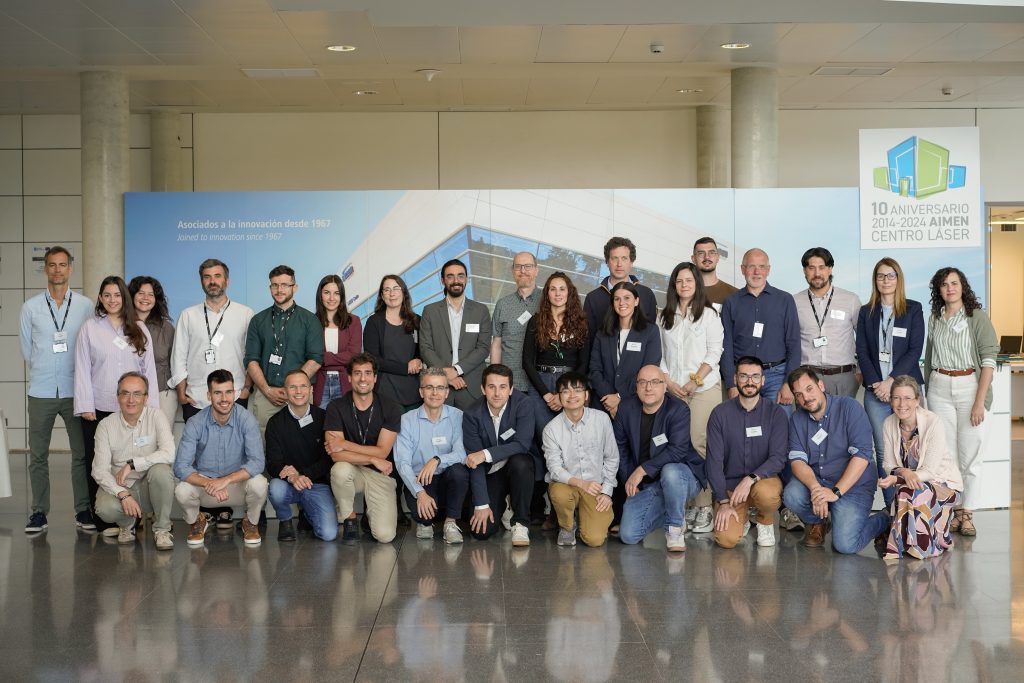
Nature’s clever solutions have often been translated to economic sectors such as architecture or healthcare. The EU-funded project goes one step further: It will not only 3D-print bio-inspired structures with bio-based materials, but also integrate biology, engineering and information technology to create a self-learning system. This system will evolve through technologies like AI-driven cognitive and evolutionary controls. Within the project, the developments will be applied to enhancing wind turbine blades. In addition, they can be adapted to any field in manufacturing that may benefit from bio-based materials. The four-year project is led by AIMEN Technology Centre and started on 1 June 2025. EIT Manufacturing Central contributes by leading awareness creation for the project from the start.
“Additive Manufacturing is highly promising but has its challenges,” explains Andrea Fernández Martínez, Artificial Intelligence Researcher in AIMEN and Project Coordinator. “It’s a young technology which needs to improve before it will yield first-time-right products. The bio-intelligent approach we take in ORGANIC is based on data and will give us the opportunity to create a system that will correct itself by comparing what has been produced with the ideal state towards a first-time-right fabrication.”
The project consortium has 13 partners and consists of a Spanish wind turbine manufacturer, 3D-printing companies for large composite parts, universities and research and technology organisations as well as hardware and software companies, an innovation consultancy and an innovation network. It spans eight European countries and multiple disciplines.
“The project has the potential to enable the biological transformation of Additive Manufacturing and thus become one of the references in the next revolution of manufacturing,” says Alexandre Cunha, Project Manager in AIMEN and in ORGANIC. “Its multi-disciplinary approach is highly ambitious: We take inspiration from nature, design new structures using bio-based materials, develop hardware as well as software and want the result to be adaptable across different manufacturing value chains. The use case in wind energy is our starting point.”
The project team will work on wind turbine blades to validate their technological developments. Expressed simply, the blades consist of a three-layer sandwich structure. Most of its middle layer is currently made of foam from thermoplastics such as PVC or PET or natural balsa wood. By 3D-printing a customised core from bio-based material, the blades can be more easily recycled while keeping their intended functionality and technical requirements. The new approach will thus help save costs and increase sustainability in a growing industry sector.
In a first step, the project partners will define the requirements of the new core of the sandwich structure. These requirements will influence the choice of bio-based material as well as the AI-driven generative design of the components. A prototype of the printing head will be equipped with sensing technology and a self-X control system. It will be tested in the Additive Manufacturing Pilot Line of the AIMEN Laser Applications Centre. Analysing the results will determine which sensors will be needed in the second iteration of the hardware.
At the same time, the software part of the project will develop an AI-driven cognitive and evolutionary control system based on digital twins, leveraging a reinforcement learning framework. Asset Administration Shell (AAS)-based digital twins will be integrated for standardisation and interoperability via an ontology-based knowledge system.
About ORGANIC
ORGANIC aims to lead the biological transformation of Additive Manufacturing (AM) by integrating bio-inspiration, bio-intelligence and bio-based materials into Fused Granulate Fabrication (FGF). Through a unique combination of advanced bio-intelligent technologies like AI-driven cognitive and evolutionary control systems, ORGANIC enables the first-time-right fabrication of complex bio-based large components, enhancing the adaptability, efficiency and sustainability of manufacturing technologies.
One of the five projects in the scope of bio-intelligent manufacturing, this project has received funding from HORIZON-CL4-2024-TWIN-TRANSITION-01-TWO-STAGE under grant agreement number 101178127. Funded by the European Union.
